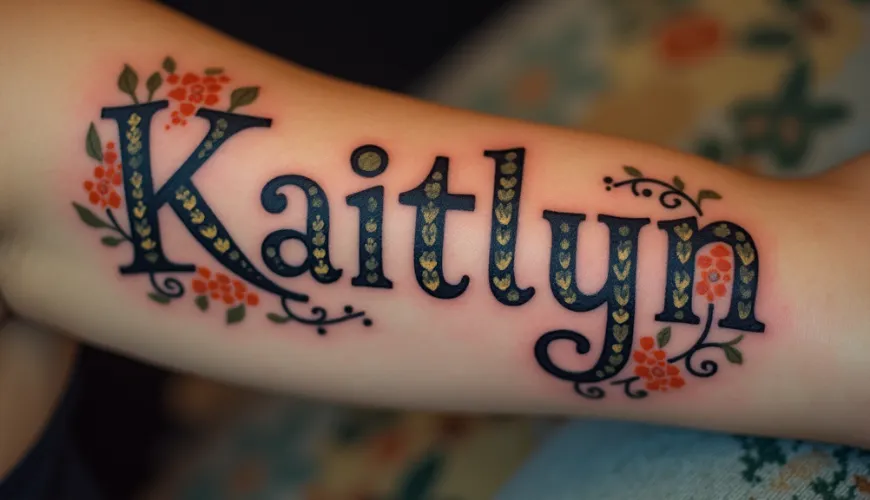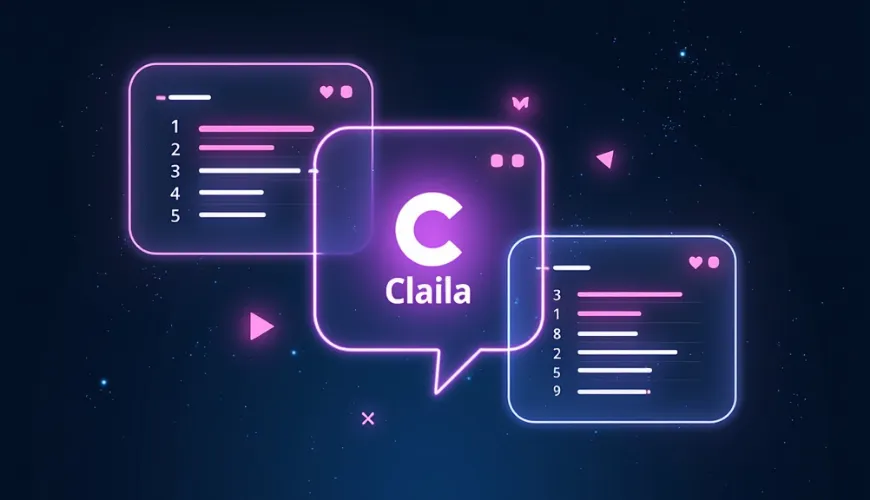Try it now! Type your name below and let Claila's AI spell it phonetically for you:
Claila is a powerful AI platform that integrates language models like ChatGPT, Claude, Grok, and Mistral. Among its many productivity tools, Claila offers an AI chat assistant that can instantly generate the phonetic spelling of your name or last name.
Just type something like:
"How do I phonetically spell my name, Kaitlyn?”
And Claila will respond with:
Phonetic spelling: KAYT-lin
It's that simple.
How to Phonetically Spell Your Name with AI
Ever been on a phone call where someone keeps asking you to repeat your name? Or filled out an online form and wondered how your name would sound to someone reading it out loud? If you're nodding yes, you're not alone.
Knowing how to phonetically spell your name can be incredibly useful—whether you're traveling abroad, attending an international job interview, or just trying to make your name easier for voice recognition tools to pronounce. And thanks to AI tools like Claila, it's now easier than ever.
This guide will walk you through everything you need to know about how to phonetically spell your name, what phonetic spelling even means, and how Claila's AI can be your go-to name pronunciation assistant.
What Does It Mean to Phonetically Spell a Name?
Phonetic spelling is the representation of words or names based on how they sound, rather than how they are traditionally written. This is particularly useful when the spelling and pronunciation of a name don't align, such as:
- "Siobhan" being pronounced "Shuh-VAWN"
- "Joaquin" being pronounced "Wah-KEEN"
- "Nguyen" being pronounced "Win" or "Ngwin"
When you spell your name phonetically, you're breaking it down so that anyone reading it can pronounce it correctly—no guesswork involved.
Why Should You Learn to Spell Your Name Phonetically?
There are several practical reasons why understanding the phonetic version of your name is useful:
Using correct pronunciation in professional communication is essential. It allows employers and colleagues to address you accurately, which fosters a respectful and inclusive workplace environment. A correctly pronounced name helps establish credibility and rapport from the outset.
In public speaking situations, such as conferences or award ceremonies, ensuring that presenters can pronounce your name properly boosts confidence and avoids awkward moments. This attention to detail enhances your presence and allows for smoother introductions in front of larger audiences.
When traveling, especially to countries where your name might be unfamiliar, sharing its correct pronunciation helps locals engage with you more comfortably. This small gesture can lead to more meaningful and respectful cultural exchanges.
In the realm of online learning, knowing the correct way to say a name is increasingly important. Through virtual classrooms on learning platforms, instructors and classmates who can pronounce your name correctly contribute to a more personalized and inclusive digital learning experience.
Lastly, as artificial intelligence and voice assistants become more integrated into daily life, teaching these technologies how to say your name accurately improves functionality. Names that are recognized properly enhance interactions with digital tools, making them more responsive and human-centered.
How to Use Claila's "Phonetically Spell My Name” Tool
Claila's AI chat makes the process effortless. Here's how to get started:
Step-by-Step:
- Go to Claila's platform.
- Type a prompt like "How to spell my name phonetically: Ximena”.
- Instantly receive a response with the phonetic spelling.
Let's look at some example prompts and the AI's responses.
Example Prompts and Phonetic Spelling Output
Explore these real-life examples to see how useful and accurate Claila can be:
Example 1: First Name
Prompt: How to phonetically spell my name: Niamh
Output: NEE-uv
Example 2: Common Mispronounced Last Name
Prompt: How do I phonetically spell my last name: Nguyen
Output: WIN or NGWIN (varies based on regional dialect)
Example 3: Unique Spelling
Prompt: How to spell my name phonetically: Aisling
Output: ASH-ling
Example 4: Foreign Names
Prompt: How do I spell my name phonetically: Wojciech
Output: VOY-chek
Example 5: Full Name
Prompt: How to phonetically spell my full name: Siobhan McDonagh
Output: Shuh-VAWN Mc-DUN-uh
You'll notice the AI also adds slight nuances like syllable emphasis and regional variances, offering a much more helpful breakdown than simple text-to-speech tools.
When Should You Use Phonetic Spelling?
Depending on your situation, phonetic spelling can be helpful in many contexts. Here's a quick list:
In professional settings such as job applications and interviews, using phonetic spelling in your email signature or application form can make a significant difference. This thoughtful detail helps recruiters and hiring managers pronounce your name correctly from the outset, contributing to a respectful and confident interaction.
When it comes to online dating, first impressions matter. Including the phonetic version of your name in your profile allows potential matches to feel more at ease when addressing you. It smooths out early communication and helps establish rapport right from the start.
On voice mail messages, leaving your name with the correct phonetic pronunciation can reduce misunderstandings and ensure that callers refer to you properly. Clear communication in this context enhances professionalism and courtesy.
For international travel, including the phonetic spelling of your name on travel documents or itineraries can be especially helpful. This is particularly relevant when visiting regions where your name might be unfamiliar or difficult to pronounce, aiding smoother interactions with locals and officials.
Differences Between Phonetic Spelling and the NATO Phonetic Alphabet
It's important not to confuse phonetic spelling with the NATO Phonetic Alphabet. While phonetic spelling breaks down how a name sounds, the NATO system spells out each letter using standard words like Alpha, Bravo, Charlie, etc.
For example:
- Name: "Liam”
- NATO: Lima, India, Alpha, Mike
- Phonetic Spelling: LEE-um
Both systems have their uses, but Claila focuses on name pronunciation, not individual letter coding.
Tips to Improve Accuracy with Phonetic Spellings
While Claila's AI is highly accurate, you can get even better results by following a few tips:
- Include context: Adding the origin or language of the name helps the AI pick the right pronunciation.
- Example: "How to phonetically spell my name: Jose (Spanish)”
- Break down syllables: You can ask the AI to split the name into syllables.
- Example: "Spell my name phonetically with syllables: Anastasia”
- Ask for regional variations: Some names sound different in American vs. British English.
- Example: "Phonetic spelling of my name: Dara (Irish vs American)”
Can I Phonetically Spell Other People's Names Too?
Absolutely. Whether it's for clients, colleagues, or friends, Claila's AI makes it easy to spell anyone's name phonetically. This is especially useful for HR managers, event coordinators, and educators.
Pro Tip:
Use this feature before hosting a Zoom call or conducting an interview—it can make you look more respectful and culturally aware.
How Accurate is AI at Phonetically Spelling Names?
AI tools like Claila use large language models trained on millions of names, pronunciations, and linguistic rules. This allows it to achieve impressive accuracy, even with rare or foreign names. However, since some names have multiple correct pronunciations depending on cultural or regional differences, the tool might offer more than one option.
According to a 2023 report from MIT Technology Review, AI models can now identify correct name pronunciations with over 90% accuracy for commonly used names globally.
That said, Claila allows you to ask follow-up questions or correct the output, creating a more personalized experience.
Fun Use Cases: Beyond Just Clarity
Phonetic spellings aren't just practical—they can add a creative and personal touch to how we present ourselves. One popular use is in name tattoos, where individuals choose to ink their names in phonetic form. This not only makes the tattoo unique but also gives it an added layer of meaning that goes beyond just aesthetics.
On social media, bios are a perfect space to help others understand how to pronounce your name correctly. By including the phonetic spelling, you can instantly clarify pronunciation, which is especially helpful for names that are commonly mispronounced. It's a simple yet powerful way to own your identity online.
Special events like weddings also benefit from phonetic spellings. On invitations, including the phonetic version of the couple's names ensures that guests can pronounce them with confidence. This small detail can make a big difference in helping everyone feel more connected and comfortable during the celebration.
Finally, phonetic spellings are a game-changer for audio platforms such as podcasts. When hosts are introducing guests or thanking sponsors, having a phonetic guide can prevent awkward mispronunciations and show respect. It sets a professional tone and ensures that everyone feels acknowledged properly.
How to Spell Your Last Name Phonetically: A Common Challenge
Last names are often more complex than first names, especially when they originate from non-English languages. Here's how Claila handles some tricky surnames:
-
Prompt: How to phonetically spell my last name: Bhattacharya
Output: Buh-TAH-chuh-ree-uh -
Prompt: Spell my last name phonetically: Chrzanowski
Output: Shrah-NOV-skee -
Prompt: What is the phonetic spelling of my last name: D'Souza
Output: Deh-SOO-zuh
Even if your last name includes apostrophes or hyphens, Claila will still return a clean, easy-to-read pronunciation guide.
Share Your Name the Right Way
In an increasingly global and digital world, getting name pronunciation right is more important than ever. From job recruiters to social media followers, people form impressions based on how names are introduced.
Claila makes it easy to put your best name forward, both in writing and in speech.
Whether it's your first time using phonetic spelling or you're just curious to see how your name sounds to others, give Claila a try and discover a whole new way to express your identity.



